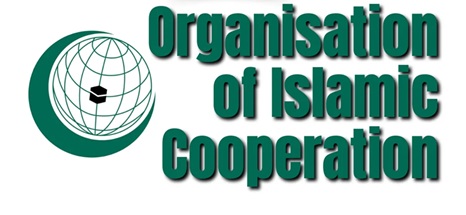(Prelims: Current Events of National and International Importance)
(Mains, General Studies Paper- 2: Important International Institutions, Institutions and Forums- Their Structure, Mandate) |

Context
India has rejected the OIC's inappropriate and factually incorrect references to Jammu and Kashmir at the meeting of the Council of Foreign Ministers of the Organisation of Islamic Cooperation (OIC), in which India has been criticized on many issues including the 'social exclusion' of Indian Muslims. Apart from this, India has also talked about the misuse of the OIC platform by Pakistan.
About the Organisation of Islamic Cooperation
- Introduction: It is an international organization that represents Muslim majority countries. It is the second largest international organization after the United Nations.
- Headquarters: Jeddah, Saudi Arabia
- Established: September 25, 1969 in Rabat, Morocco
- Background: The main reason for its establishment was the fire incident in the Al-Aqsa Mosque in Jerusalem on August 21, 1969, which was seen as a serious insult by the Muslim world. This incident inspired Muslim countries to unite.
- Initial name: Earlier it was called 'Organisation of the Islamic Conference' but in the year 2011 its name was changed to 'Organisation of Islamic Cooperation'.
- First summit: The first Islamic summit was held in Rabat in the year 1969, in which 24 countries participated.
- Member countries: Currently 57 countries of Africa, Asia, Middle East and Europe continents are its members, which are mainly Muslim majority countries.
Major objectives of OIC
- Promoting Muslim unity: Strengthening solidarity and cooperation among member countries
- Protecting Islam: Improving the image of Islam, combating Islamophobia and protecting the rights of Muslim communities
- Economic and social development: Promoting cooperation in education, science, technology and economy
- Peace and stability: Resolving disputes and establishing peace among member countries or at the global level
- Palestine and Al-Quds: Supporting the right to self-determination of the people of Palestine and preserving the historical and religious significance of Jerusalem (Al-Quds)
- Human rights and environment: Promoting human rights in Muslim countries and focusing on environmental sustainability
- Anti-terrorism: Cooperating against terrorism without linking terrorism to Islam
Structure
The structure of OIC includes the following major organs:
- Summit (Islamic Summit)
- It is the supreme decision-making body of OIC. Heads of state or government of all member countries participate in it.
- It is held every three years. However, emergency meetings can also be called in special circumstances.
- Council of Foreign Ministers
- It is responsible for policy making and implementation.
- Its annual meetings are held, in which foreign policy, regional issues and activities of the organization are discussed.
- Standing Committees: Committees for cooperation in various fields, such as:
- Al-Quds Committee (for Palestine and Jerusalem)
- Economic and Commercial Cooperation Committee
- Science and Technology Committee
- Supporting organizations and institutions:
- Islamic Development Bank (IDB): Financial assistance for economic development and projects
- Islamic Educational, Scientific and Cultural Organization (ISESCO): Promoting education and culture
- International Islamic News Agency (IINA): For information and communication
- Islamic Center for Development of Trade: Promoting trade
India and OIC: India is not a member of OIC but due to having the second largest Muslim population in the world, India was invited as a guest in the meeting of foreign ministers of OIC in the year 2019.



